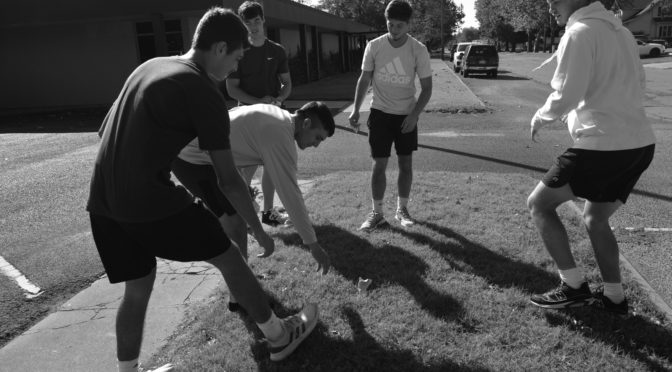MHS seeks to protect the environment
Tamara McConnell
Writer
Growing nationally and globally as a major concern, protecting the environment has been the sole incentive for environmental protection agencies as they highlight the need to clean the planet.
According to the United States Environmental Protection Agency (EPA), a corporation dedicated to developing and spreading guidance on sound waste disposal, Americans produced 267 million tons of trash in the 2017 cumulative year where only 94 million tons of that average was recycled or composted, equaling a 35% average recycling rate.
Internationally, the world produces, in general, 2.01 billion tons of waste annually, with America generating 12% of that worldwide average despite housing only 4% of the global population.
In order to combat the rising waste problem, many cities are looking towards a zero-waste concept for a cleaner future where cities such as New York, San Diego, Washington D.C. and Miami are placing a ban on styrofoam products because of its tendency to break down into smaller pieces and damage the environment.
The EPA estimates that the average person throws away around 600 times their body weight in trash, averaging out at 90,000 pounds over the course of their lifetime.
Of the trash people will accumulate, 75% is shown to be recyclable, but only 30% of that trash will be properly thrown away.
In a World Bank report taken in 2018, the world is expected to produce around 70% more harmful waste by the year 2050, unless people use appropriate waste disposal methods, such as recycling.
Proper recycling greatly reduces harmful trash ending up in landfills, oceans and in the natural habitats of animals by reusing the waste’s original properties and turning it into energy-friendly products.
Animals across the world often mistake people’s trash for food or shelter, leading to thousands of creatures dying from discarded litter each year.
Marine creatures have especially been impacted by the staggering amount of waste humans have generated in the last few years as 5.25 trillion pieces of plastics and garbage are believed to be floating in the Earth’s oceans, according to the Ocean Crusaders – an Australian based waterway cleaning team.
In order to minimize the impact done to nature, most modern landfills are now engineered with a variety of clays and plastics that allows waste to decompose naturally, allowing any leftover materials to be collected for reuse.
By throwing away certain plastic and paper products into suitable trash containers, an estimated 400,000 trees are prevented from being cut down, allowing for improved and cleaner air quality.
Recycling also helps limit the number of toxic chemicals put into the air when waste is incinerated or otherwise left in landfills that are frequently miles in length.
In Oklahoma, trash is often left in landfills sealed beneath itself indefinitely, leading to a prolonged time where trash is no longer exposed to the sunlight, gases and water it needs to help break it down naturally, according to the Oklahoma Department of Environmental Quality – an agency working towards protecting people by spreading information on air and water quality.
As the Education Programs and Service Coordinator of the Oklahoma DEQ, Sara Ivey explained simple ways to bring about change in keeping the environment clean.
“While we are big promoters of recycling, reducing and reusing are more effective,” Ivey said. “Try to eat local, in-season food or grow your own food in your backyard garden and compost the leftover organic waste. When buying groceries, only buy what you know you will eat to reduce your food waste. Reduce your impact on air quality by carpooling, combining errands into one trip and properly maintain your tire pressure. Each of these actions can seem very small in relation to global environmental issues, but if more people make these small choices everyday, we can see big changes take place.”
Marlow High School has also taken a stand on practicing environmentally sound trash disposal by setting up recycling bins around the school campus, with the MHS Student Council purchasing the bins from unused funds from their National Convention budget.
As the primary deviser behind the recycling bins, StuCo Vice-President Elena Holguin sought to have students become more aware of the waste being put into their surroundings.
“Having the bins makes students think about what can be recycled before they decide to throw it away,” Holguin said. “It helps encourage students to care for our environment and start change in our minds.”
As corporations highlight the need to better the environment, MHS will continue to pursue ways to protect and clean the planet.
